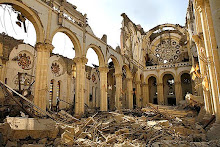"Hence the laity, dedicated as they are to
Christ and anointed by the Holy Spirit, are marvelously called and
prepared so that even richer fruits of the Spirit may be produced in
them. For all their works, prayers, and apostolic undertakings, family
and married life, daily work, relaxation of mind and body, if they are
accomplished in the Spirit - indeed even the hardships of life if
patiently born - all these become spiritual sacrifices acceptable to God
through Jesus Christ. In the celebration of the Eucharist these may
most fittingly be offered to the Father along with the body of the Lord.
And so, worshipping everywhere by their holy actions, the laity
consecrate the world itself to God, everywhere offering worship by the
holiness of their lives."
-- CCC 901
Tuesday, Fifth Week of Easter










